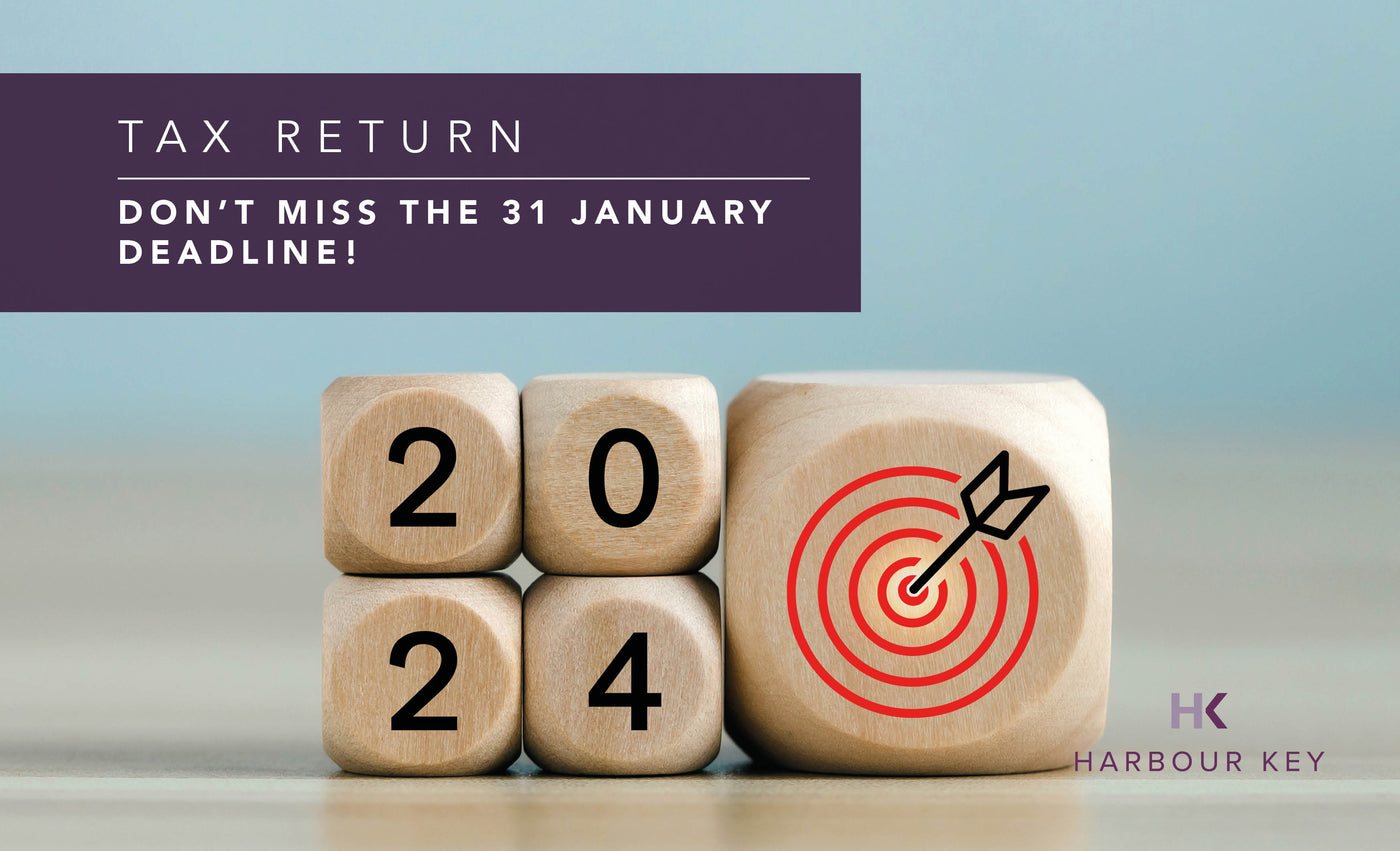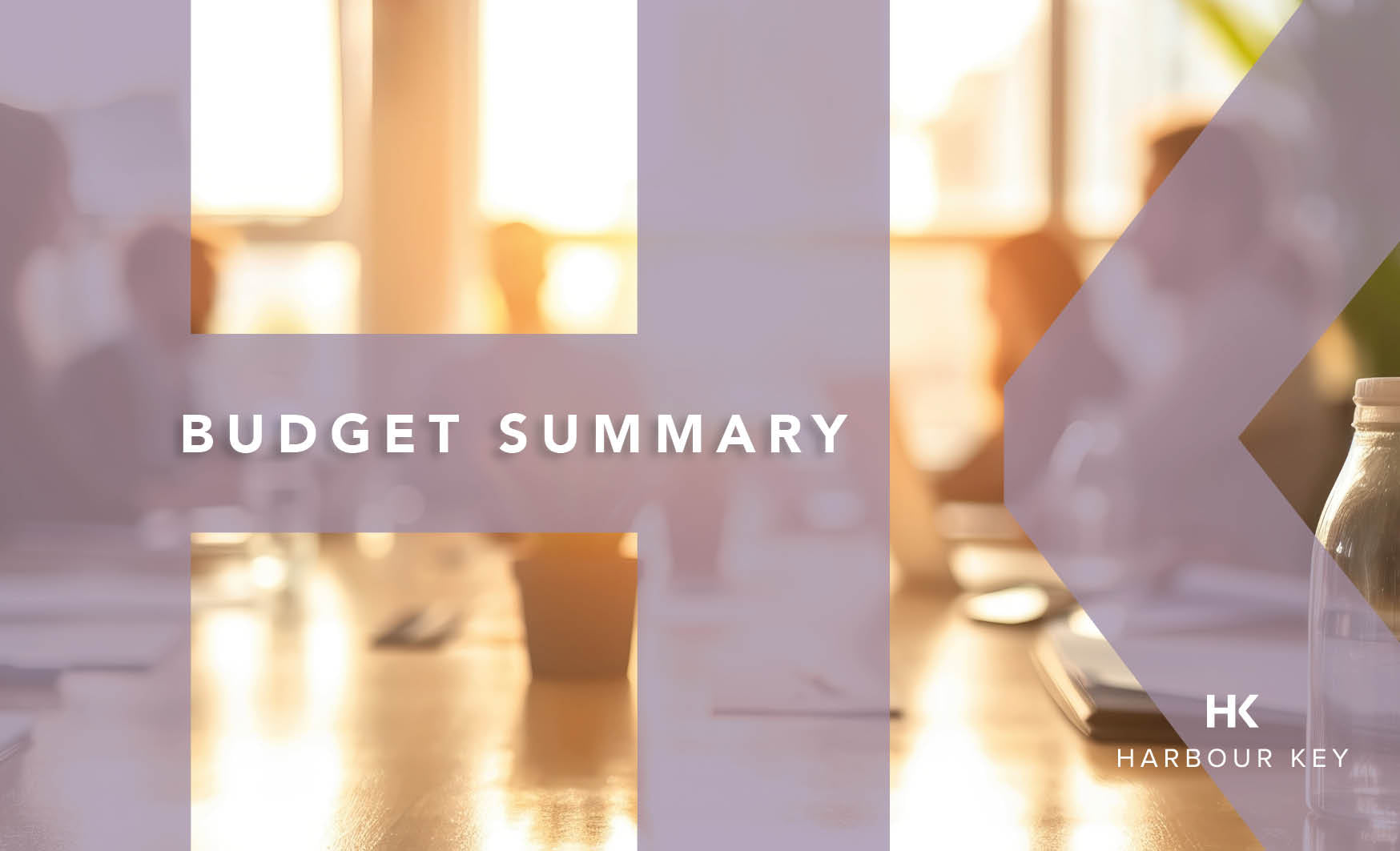
Here at Harbour Key, the 31 January tax filing and payment deadline becomes the focus at this time of year. It comes round ever year and has been the self-assessment filing deadline since 1997.
However, with less than six weeks to go, we have 140 clients who have not provided their information, with most clients only sending information from October onwards. The pressure this puts on the team is immense, in addition to other client commitments, such as accounts filing, transactions, tax enquiries etc.
In addition to filing the tax return by 31 January, tax payments also must be made. Where liabilities remain unpaid by 31 January, taxpayers will accrue late payment interest. Getting started on your return now so that, in addition to reducing the chances of late filing, you will also have a better idea of the tax payment due by 31 January will help you budget. To help you either file your own tax return, or collating your information for Harbour Key, we have put together ten top tips for filing your tax return.
Top tips
- Make sure you have all the relevant documentation. If you have set up a Government Gateway Account, then accessing your personal tax account will help you collate information. Your personal tax account will contain information on your employment earnings, pension income and any benefits in kind you received, where this has been reported to HMRC by your employer and/or pension providers. It is worth checking that these agree to the P60 and P11D provided by your employer or pension provider.
- Collate your Gift Aid receipts, details of investment income earned outside an ISA, and records of your revenue and outgoings if you are self-employed or have rental properties. Income from outside the UK should also typically be declared as part of your self-assessment, so do not forget offshore investments, bank accounts or rental of property. You need to follow the requirements for Making Tax Digita for Income Tax if you are self-employed or a landlord: from 6 April 2026 if you have an annual business or property income of more than £50,000. Then from April 2027 if you have an annual business or property income of more than £30,000. Implementing a financial management system like Xero, FreeAgent, or Quickbooks will be necessary. Setting up one of these systems now will save you time in the future and will help you to more effectively manage your business finances.
- It may be possible to claim a capital loss reducing your tax liability, if you hold assets or investments which have fallen in value and are now worthless, think crypto, or if you have previously made loans to a trading company which have become irrecoverable. Where a capital loss relates to shares in an unquoted trading company, it may be possible to offset the loss against income which would otherwise be subject to income tax at up to 45% (or 46% for Scottish residents), subject to certain restrictions. If you think this applies, please discuss with the team, as the rules re losses can be complicated.
- If you have made personal pension contributions in 2022/23 with basic rate tax relief at source, you will need to declare these on your self-assessment return. Higher and additional rate taxpayers will then receive additional tax relief through self-assessment, but need to take care as relief may be restricted for those whose total income, including pension provision by their employer, exceeds £240,000. If over-contributions have been made, an annual allowance charge may apply. Pension contributions, in particular the restriction catches a number of people out.
- There is a personal savings nil rate band, often referred to as an allowance, of £1,000 for basic rate taxpayers, £500 for higher rate and nil for additional rate taxpayers. Even if your interest earned was below the allowance, it still needs to be declared on your 2022/23 return. Similar rules apply for dividends, where the dividend nil rate band was £2,000 in 2022/23, now £1,000.
- If you have trading or property receipts but low expenses the trading and property allowances may be relevant to you. These allowances are available in lieu of expense deductions and mean that trading and/or property receipts of up to £1,000 each can potentially be received tax-free. The allowances are not available in respect of income received from a lodger in your home. Instead, the rent-a-room scheme can apply which lets you earn up to £7,500 per year before expenses tax free.
- UK residents who realise a taxable gain on disposal of UK residential property are generally required to file a standalone Capital Gains Tax (CGT) return and make a payment on account of the CGT due within 60 days of completion. Non UK tax residents are required to file CGT report regardless whether there’s a gain or loss on the disposal. The disposal and the tax already paid via the CGT return will still need to be reported on your self-assessment return.
- Dig out your charitable donations under the Gift Aid scheme. Like personal pension contributions, Gift Aid donations may attract additional relief if you are liable to higher or additional rate tax. You can claim relief for charitable donations made under the Gift Aid scheme in either 2022/23 or in some cases during the 2023/24 tax year on your 2022/23 return, as long as those donations were or are made prior to 31 January 2024 and before your tax return is filed.
- If you or your partner claim child benefit and your income is over £50,000 you may need to include a claw-back in your tax return. Income for this purpose includes income within your savings allowance and dividend nil rate band, even though tax is not otherwise payable on this income.
- Before you file, you should check, and double check, all of your details and ensure that you have accounted for everything. As we report on a monthly basis, and this month’s newsletter, HMRC receive a lot of information directly from third parties which they can cross check using their AI software known as connect, so if anything is omitted or entered incorrectly, an enquiry may well be opened.
Penalties for inaccuracies in tax returns can be much harsher if HMRC spot them first and they will charge penalties if the original return is considered to have been filed ‘carelessly’. We have reported previously how HMRC are using penalties to raise revenue and applying them more harshly, so best practice is to try and avoid an enquiry by getting the tax return right.
For those clients who have not supplied their information for their tax return, please take some time over Christmas to deal with this. From our side, those who deliver their information after the second week of January, with the volume of work we have, we can’t guarantee that we can make the 31 January deadline!



